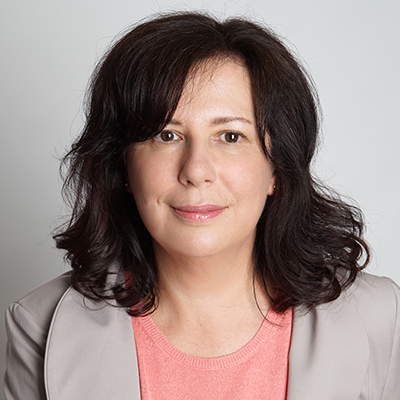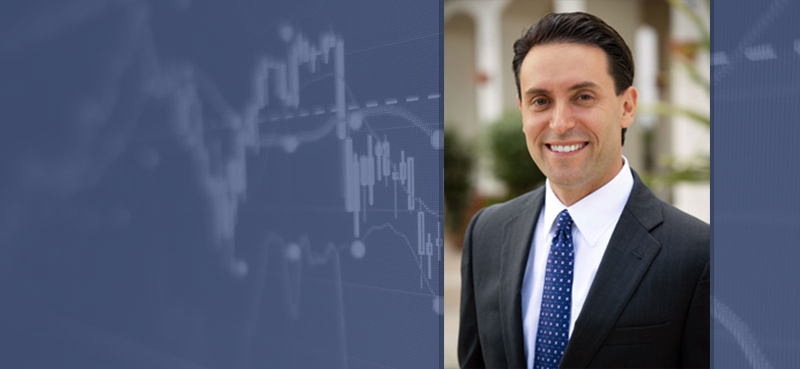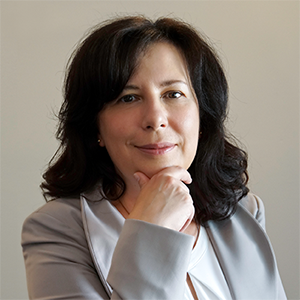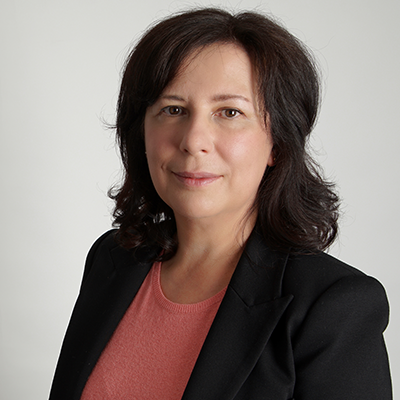Some of you may already know Genia Turanova. She’s Curzio Research’s new Moneyflow Trader editor, where she shares how to profit from falling stocks.
But for those of you who aren’t familiar with her work… Genia is a 15-year market veteran and an incredible analyst with a great track record. She knows all about hedging markets, but she’s also great at finding income plays. Listen as Genia explains her methodology… and shares some of her favorite ideas right now [15:52].
In my educational segment, I share how to piggyback off some of the best investors on the planet. Plus, I give you a giant list of stocks you need to start researching immediately [41:42].
- Guest: Genia Turanova, editor of Moneyflow Trader [15:52]
- Educational segment: How to piggyback off the best investors [41:42]
Wall Street Unplugged | 696
Don't make this mistake when searching for income
Announcer: Wall Street Unplugged looks beyond the regular headlines heard on mainstream financial media to bring you unscripted interviews and breaking commentary direct from Wall Street, right to you, on Main Street.
Frank Curzio: How’s it going out there? It’s November 20th. I’m Frank Curzio, host of the Wall Street Unplugged podcast, where I break down the headlines, and tell you what’s really moving these markets. Holy cow, did you guys see the numbers from retail? Retail companies are reporting, it’s the end of earning season, and they report towards the end of earning season, but they all reported pretty much in the last four, five days. Have Macy’s coming out tomorrow, it should be interesting. I won’t be surprised if that stock falls because it’s gotten crushed so much going into the quarter, especially we’re seeing recent results out there, especially from the big box retailers.
Frank Curzio: As you know, I follow this sector for a long time. Pretty good at telling you when to buy it, when not to buy it. People always say the sector’s dead, the mall is dead, these outlets are dead, stores are closing. Yeah, they’re right with the store closures, but you can’t say it’s dead. It’s definitely an industry that’s in decline, but they’re still trying to find their way. Just like online companies and eCommerce, like the hundred percent eCommerce sites, and we’ve even seen Amazon come on and Wal-Mart come on and say that there’s a big move into big box retailers, because people just like to see things, they like to touch them, whether it’s a TV or they want to try the clothes on.
Frank Curzio: There’s definitely a mix between that, that works. It’s not either eCommerce or stores. People kind of want both. Of course eCommerce has done much better. Higher margin, you don’t have to worry about paying as much employees and electricity and stuff like that, but you’re seeing it with these results which are pretty insane, right?
Frank Curzio: If you’re looking at specifically, Home Depot numbers are pretty bad. I was surprised. The stock fell more than five percent in the news, which, it’s not really that bad. Their stocks up tremendous. 35 percent year to date, heading into the quarter, up about 15 percent over the last three months, and now it’s declined, but the numbers really weren’t that good. Where you saw margins fall, that earnings were down three percent year over year, and Home Depot trades at a very high multiple, right, and you look at it, earnings down, declining year over year, and that premium is around 20 times forward earnings. The rest of market trade’s around 17 times earnings.
Frank Curzio: What is really disappointing with Home Depot is the communication, because it was a couple weeks ago I believe that they spoke at the Goldman Investor conference. It’s a very, very big conference, and when they were doing this presentation, and I think it was either the CEO, or someone high profile, it might not have been the CEO, but they actually said the US consumer is exceptionally healthy right now. It was a headline. I’ve seen the headlines different places. Home Depot says the consumer-
Frank Curzio: Because that’s the big thing, right? Is the consumer good? Are they okay? Consumer spending, spending accounts for 75 percent of GDP, so it’s amazing that one of the biggest retailers in the world came out and said that, and it’s even more amazing that that was a few weeks ago, and then you come around and you report these numbers and kind of weak guidance, that was surprising.
Frank Curzio: Now these weak Home Depot numbers, they’re echoed by Kohl’s which was a horrible quarter, a horrible quarter, and guidance. The stock fell 20 percent in one day. Kohl’s fell 20 percent in one day! They missed earnings by a ton. Guidance was incredibly weak.
Frank Curzio: It’s funny because when I dug into those details, their strategy is, “Hey, we need to increase their eCommerce platform where people buy online and pick up in the store.” Right, that’s the big advantage you have if you have big box retailers. You go look, shop, and say, “Okay, now I can go to the store and pick it up instead of getting it shipped.” Whatever.
Frank Curzio: Now, they also sign a partnership with Amazon that allows Amazon customers to return their merchandise at Kohl’s stores. This has resulted in the increase of traffic, which they said on their call, but it’s crushing them and this strategy is backfiring for them because it’s not leading to more spending by the consumer.
Frank Curzio: You’re looking at that and what’s happening, and it’s not just- Urban Outfitters report, again, another company that bombed the quarter in the retail industry, and what’s happening in this sector is companies are trying to increase traffic any way possible. That’s what you want to do, and that’s not a great thing, hear me out first, if you’re spending a hundred dollars per customer to increase that traffic, and these customers are only buying $75 in merchandise, and that’s what’s going on. Not exactly those numbers, but you get my point.
Frank Curzio: What is that result in? It results in higher sales, but lower margins, and that’s where these guys get smoked. Especially the smaller ones, because you’re looking at Amazon and Wal-Mart. They know these trends. That’s why they’re spending a fortune on the one day shipping, which is increased expenses for these two giants, but if you’re looking at the long term outlook, it crushes the competition, which can’t really compete with something like that. They try, but they don’t have the balance sheets of the Amazons and the Wal-Marts to do something like this, to take a hit, to see Amazon’s stock decline by five, seven percent, because hey, we’re putting more money into this because we’re going to do one-day shipping.
Frank Curzio: Which separates them from almost everyone out there, and Wal-Mart followed suit, but look at the other companies. They can’t really follow that. That’s tough to do. When I’m looking at holiday sales, and the reason why I’m starting out this segment, because we’re going into the holiday sales, Black Friday just around the corner, Cyber Monday, I don’t think you’re going to see a lot of winners in terms of stocks.
Frank Curzio: You got Kohl’s, Nordstrom, Gap, Guess, Urban Outfitters, just a ton of risk in a lot of these names, and I’m not sure the reward is worth that risk you’re going to take, even though some of these names have already gotten crushed. For me, when I look at this sector, it’s not a good idea to go bottom fishing into the holiday season where margins are going to be incredibly weak.
Frank Curzio: I shared this story with you once before, when I was working with Jim Cramer, and we had a big Christmas party when things were great. Eddie Lampert was there, he was a close friend of Jim’s, and I was talking to him, the CEO, and he said holiday sales, the worst. It’s the worst. Eddie Lampert is Sears, right, and we know what happened to Sears, but this is probably about 12, 15 years ago. He said, it’s the worst ever. Holidays is just the worst period. We discount everything, the customers bring back a lot of stuff. You don’t make a lot of money on it, but you have to offer it because everyone else is offering it and you’re going to lose out.
Frank Curzio: So, when I see everything here, everybody that reported so far, there’s a much bigger point here that you need to understand as an investor. The weakness in some of these retailers, it’s not a reflection of the consumer. I know it might sound crazy. I also know what I just said is pretty boring. Everybody wants to hear that crash and burn story, the world is ending, the consumer is dead, stores are going to close. That gets headlines, I get it, but it’s not the case, because what do we see?
Frank Curzio: Target. Target’s expectations. That stock of where it ran up, through a hundred dollars, and this is something I was wrong on. I told you I avoided it a while ago. Holy cow was I wrong. They got everything right. It’s rare that you see Target and Wal-Mart move up in tandem, because usually they go through these periods of Wal-Mart wants to beat Target and offer a little bit more high-end products and Target wants to beat Wal-Mart and they want to say hey, let’s offer discount products. Both of these guys are making it work at the same time, which is cool.
Frank Curzio: Target had huge expectations, and they blew them out. They blew out those expectations, and that stock went higher. Wal-Mart, good quarter. Best Buy, they’re an all-time high. They figured it out. They figured out how to compete, and now they have partnerships with Amazon. People used to go to Best Buy and say, “Wow, this is pretty cool, okay, let me go to Amazon.” Now, they match prices. Now you can go to the store and get your TV, your flat screen TV, plus they offer their whole Geek Squad services division which comes and sets the whole thing up, and that’s like pure margins. Which is great, and that’s how they compete, and say, “This is what we’re going to do. We’ll match the prices.” But, they’re going to make it up on the services end, and yet they have that advantage where if you buy a flat screen TV, you can’t really touch it. Not you can’t really, you can’t touch it, right?
Frank Curzio: Maybe you go sample it in all the stores, but why am I going to even go on Amazon when I can go there, ask the person a question, he knows everything about that product. You’re not going to Wal-Mart and asking them a question about technology where they’re going to give you the box and read it and tell you what it is. Right, nobody knows what’s going on in those stores, that’s why they offer discounts. These guys are specialized and tell you everything about the TV, what’s good, this might be a better option, it could be cheaper, more expensive. People love that. Finding ways to compete.
Frank Curzio: Amazon, doing a great job. You look at Dollar General. eBay. What does this mean? It’s something that I told you about four or five months ago that I’m seeing in the market for the first time in a good five, six years. You’re seeing separation from the garbage to the good stuff. Okay, over the years, this bull market has been running higher, but we’ve seen all the technology stocks do great. All of a sudden, now, even you’re seeing some technology stocks sell off and others do well within the chip sector.
Frank Curzio: Applied Materials, not good, Intel was really good. There’s Micron, okay, but there’s separation between these names. Some of them, again, just are not getting it done. It’s not the whole industry or a cyclical thing. It’s companies and management teams. Some of them are doing a great job and others are not. You know what, that means it’s a stock picker’s market. That’s something I love, that I pride myself on. Where you’re going to find the best ideas within the market where in the past, you would say, “Okay, here’s my top down approach, I’m going to invest in whatever it is.” Whatever the sector, say if it’s healthcare. All right, I do like healthcare, healthcare is cool, I’m going to invest in it, and I think healthcare is going to take off, so what is my job? My job is pretty much to buy the most risky companies because those are the ones that go up the most in a full blown out bull market. Just like those are the ones that go down the most when the market crashes.
Frank Curzio: Now, you can’t do that. Those stocks aren’t really participating in that move up. Not all the stocks. Look at retail. Target’s through the roof. Target’s amazing. Wal-Mart, Dollar General, Lowe’s reported decent numbers, but Home Depot didn’t. Yet, you’re seeing all the bad reports out there, where Kohl’s, Urban Outfitters, a lot of separation. It’s not the whole industry where the consumer is doing bad. You’re going to hear that a lot out there. I want you to ignore those headlines. It’s a great headline. Consumer’s dead, retail’s dead, all the stuff’s dead. Retail’s not dead. Big box is not dead, or there would be no Best Buy, there would be no Wal-Mart. It’s not. It’s just people who are getting it done, the management teams who are getting it done, and management teams that are not getting it done, and they haven’t figured it out yet.
Frank Curzio: That provides a great opportunity for you to really sift through these ideas individually to find out which are the best plays. With this intro, it’s more about looking at the consumer, looking at sentiment. The consumer is spending. They’re spending. If you look at the retail sales number. Last month it was pretty strong, showing that spending, not just spending, but on discretionary items, is going higher.
Frank Curzio: You’re looking at, eCommerce is through the roof. You’re looking at certain supplies are through the roof. There’s certain areas and pockets that are doing well, and what’s not doing well, kind of like clothing, apparel, building materials, not doing so well. There is separation to find new ideas, and that’s my education segment’s going to be about. Okay, I’ll get to that in a minute because I want to move on and tell you that I have a great interview set up for you today. It’s with first time guest, Genia Turanova. Genia is our newest hire at Curzio Research. New editor of Moneyflow Trader, incredible analyst, very, very smart, as you’ll see in a minute.
Frank Curzio: 15 years experience in option trade, also in income investing, incredible track record. I was just blown away when I spoke with her, and spoke with her about her methodology of how she finds stocks that overlap a lot of stuff that I look at, and I was really impressed right off the bat. Then seeing her gains and experience, I just thought she’d be an amazing fit and she’s been doing a fantastic job right now.
Frank Curzio: She’s going to talk about her methodology for finding her best stock ideas. She’s going to give you a great lesson on how to invest in income securities. Please listen to that part, it’s very important, because people just like to buy the highest yielding stocks without them growing and they get killed. Even though, “Hey, I got a five percent yield,” your stock’s down 20 percent. Okay, it doesn’t make sense, right, that five percent yield. She’s going to break down some of the ways, great lessons of how to invest in those income securities, and also, she’s going to share some of her favorite ideas with us. Really great interview coming up.
Frank Curzio: Then my educational segment. I mean, I just mentioned in the intro, probably about 15 stocks, but get your pen an paper out, because I’m going to mention at least another 20 stocks. That’s what I’m going to do for you, because I’m a nice guy.
Frank Curzio: Now, these stocks are based on the latest 13F filings, which is basically a document that must be filed every quarter, and this is from equity portfolio managers who manage over a hundred million assets. They have to tell the world, “Hey, this is what I’m buying, selling.” In the file they basically disclose all the names that are currently in the portfolio, including new positions, positions that they’re adding to, positions that they lowered, and also positions that they completely sold out of.
Frank Curzio: Now, when you look at this, this is, a lot of these companies, and I’ll go over this in the educational segment, but there’s ways to look at this, where you don’t just say, “Wow, Warren Buffett bought this,” or “Somebody bought this,” because they might not own it. This is reported two weeks ago, and they may have built that position over the month, but if you’re looking at a company like Renaissance Technology, Six Sigma, I mean, they’re in and out of hundreds of stocks in minutes.
Frank Curzio: When you’re reporting this, a lot of these stocks they don’t own any more. With that said, when you have managers that have passive strategies that buy and hold, they’re going to add to these positions over a long period, and it’s the best way for me to find new ideas. Not that I’m going to say, “Okay, David Tepper bought this, I’m going to go buy it.” No. It’s something where, “Wow, why are you buying this, which has gotten crushed.” Or, here’s a small cat name that a big fund manager’s buying, and I’ll start doing the research on it, and that’s what this process is about. Starting your research on the 20 or so names I’m about to give you. Because maybe one of them drops 10, 15 percent. I know David Tepper just started a new position, and he’s going to be adding to it. Maybe it gives you a good opportunity to buy it.
Frank Curzio: I’m going to show you exactly how I’m finding new ideas. 13F’s get released after pretty much earning season, which is like right now. Again, outlines all the holdings. What they’re buying, what they’re selling, and I’m going to tell you what some of these ideas that they have in their portfolios just are pretty crazy. By crazy, I say, just interesting, where I’m like, “Wow, this doesn’t make sense of why this person would have buy it, when on TV maybe they’re saying they don’t like this industry.” Or maybe they just old out of a position that everybody likes, and it’s a really big fund manager, but I want to show you exactly how to find the best ideas to start the research process, and again, get your pen an paper out, because there’s a lot of these names. You could find them by yourself. You can go through Google, but I’m going to break down some of the top managers, what they own, what they don’t own, and you’re going to get lots of new ideas to research from this segment.
Frank Curzio: First, let’s get to my interview, with Genia Turanova, where she’s also going to share a lot of pretty cool ideas with you, including a few income names. You know what, let’s get to that interview right now.
Frank Curzio: Genia Turanova, thanks so much for joining us on Wall Street Unplugged.
Genia Turanova: Hi, happy to be here.
Frank Curzio: Well, you’re a first time guest. Newest member to our research team, including editor of Moneyflow Trader, and let’s start with this. Let’s give everyone a little background about how you got into the financial newsletter industry, and you also manage money and have 15 years of experience, but why don’t you get everyone on the same page since this is the first time you’re on the show?
Genia Turanova: Oh, yeah, sure. I like to finance, I like money management, and I like stocks a lot, so my first job out of college was actually a continuation of my internship. I worked for a little bit for a small money manage manager, and a small money manager in New York City. That stock was mostly on ETF.
Genia Turanova: My next job was more stock related. That’s where I worked for about 15 years or so. In the same company that I worked as the portfolio manager, same company had a second business of writing newsletters, so that’s how I got started, back in 2003.
Frank Curzio: So, what impressed me the most is when the first time I spoke with you, we were talking about your methodology of finding new ideas. I was kind of blown away, because it overlapped with a lot of things I look at, and I have these lessons and this podcast and educational segment, and a lot of stuff that you were saying, like different investment styles and learning from the market, it just really impressed me. Could you talk about your methodology for finding stocks, because everybody has their own way of doing things, and some people are just set in their ways, and other people need to adapt.
Frank Curzio: Maybe if you could talk a little bit about that, this way people get a good perspective of how hard you work and the research that goes into everything that you’re producing for us and what you’ve produced over the past 15 years.
Genia Turanova: All right. I do have a almost two decades of experience in this business, and I was taught to approach stock investing from a slightly different way that most people that I know do. I start with looking at the economic trends, macro economy, large significant changes that’s expected. Or, something that’s really been going on and maybe incorporated in your long term outlook. It’s called the top-bottom research, and it’s really where you should be getting started if you want to invest efficiently.
Genia Turanova: The benefit of this approach is really getting you a wide range of choices, and at the same time if you understand what’s going on with the economy, the market, and the overall technology and some other long term important trends, you can actually figure out what is next for the market.
Genia Turanova: You want, as a growth and even income investor, you want businesses that are poised to grow, not to die, so you would like to invest in sectors that are poised to grow as well. That’s pretty much the first step in the approach, that I’ve learned to do.
Genia Turanova: The second step is do traditional stock research. You start with the birds eye view so to speak, then you go down by sector, then you select your preferred area, and then you go in and study everything that you can about your best poised position stocks. That usually gets results.
Frank Curzio: Now, I love that you took us through that path, because I want to give an example here. You mentioned something interesting when you said income, but you want to invest in income with companies that are growing. I think a lot of times, especially amateur investors out there, they see a company, they see a three percent yield, and say, “It’s paying higher than the SNP,” which is what, around two percent, or they’ll see a four or five percent yield on a re or mass limited partnership, and income is an area that you cover closely. How important is that, and maybe what are some of the areas, whether it’s when you’re looking from the top down approach, where I would think, healthcare looks really attractive right now, technology looks really attractive right now, to the point where now I could filter it down and find the right investments, but talk about the income portion of it, which Genia you know as well as I do the whole world wants income because industry is going lower and lower and lower and we have negative interest rates.
Frank Curzio: This is the question I get the most, and this is why we’re launching a product around you in a few months, but talk about maybe some of the areas and maybe a couple of ideas for income because I think people are misled sometimes just looking at the yield and not looking at the actual company and its growth potential which, it’s important.
Genia Turanova: It is important, and it’s as important for income investor as it is for a growth investor. You may not want a 40 percent growth. You may just want a 20 percent growth. Honestly, you won’t really get a significant or any income with the 40 percent growers, but you do want the company to grow. You buy, that’s the basic, so for any investment, whether you buy a corner grocery store, or consider buying a corner grocery store, or you’re buying the stock, you buy future business. You shouldn’t really care of what was happening to this business a year ago, five years ago, or maybe even yesterday. You want to know what will be happening tomorrow, a year out, a few years out. If you’re really lucky you know what’s going to happen a decade out.
Genia Turanova: You want something for income that can sustain a dividend, and you also want something that can pay a dividend. Pay a dividend that’s growing, pay a dividend that will eventually support your investment in case the market turns south. You also want something that will give you at least some price appreciation, which is something you will get from growing, not declining, companies.
Genia Turanova: That’s why you really shouldn’t be looking at the yield number, and if you do, you want to try to avoid companies that yield much more than their peers. That usually is a red flag.
Frank Curzio: Now, you see some of these red flags, and I know that you always say be careful with mortgage REITs, also be careful with closed end funds, because you follow this, and for you when it comes to income, this isn’t you saying, “Okay, here’s some blue chip stocks.” You have gone anywhere you think is good risk reward for income, closed end funds, bonds, yeah, and this is going to be a unique newsletter around that. It’s not just simple, “Hey, here’s a couple blue chips that you could find on your own.”
Frank Curzio: My question is, what do you see, or some of the red flags, in things like mortgage REITs or maybe closed end funds that the average investor might see and see a high yield and be like, “Wow, this is cool,” but sometimes they don’t really look under the hood. What are some of the things that they can look at to basically level them out and make sure that they’re not making a mistake.
Genia Turanova: Well, mortgage REITs is a very interesting area. It’s a part of a read sector that really is not a part of a read sector as was decided a couple of years ago when reads were selected to form a new S&P 500 sector. Your normal reads like your storage REIT or mall REIT or data REIT would go into the new sector, and all the mortgage REITs stayed within the financial sector. That’s because they’re really financial securities, and what they do, they invest in mortgages. As easy as that. That’s why they’re called mortgage REITs.
Genia Turanova: Because they do invest in mortgages, they’re extremely sensitive to interest rate changes. When interest rates were on the rise, mortgage REITs really took it on the chin. This year, because as you know REITs were declining, mortgage REITs did relatively okay. It’s just something that you need to be aware of, the sensitivity to interest rate level and direction and as good the yield might look, mortgage REITs rarely go up in price. They do, they fluctuate, but their share price won’t let you capitalize on the increase.
Genia Turanova: You want to have maybe some income in mortgage REITs, but you really don’t want to go all out.
Frank Curzio: Okay, and when you look at things like closed end funds, actually, this is a fascinating industry. I don’t know if anybody knows this, but my dad when he used to write a newsletter had a special section and this was like 20 years ago, 25 years ago, where it was just closed end funds. A lot of them were closed end bond funds. You don’t hear about closed end funds at all these days, right? Especially from the millennial generation. I bet you a lot of them don’t even know what a closed end fund is. Where it’s just not a mutual fund. It’s a bunch of stocks together, or bonds, and it trades like a stock, you just put in a symbol and buy it.
Frank Curzio: Talk about that, because that’s a great place to find yield. My dad lived off of those where he had income investors for decades, but why is it that people don’t talk about closed end funds anymore? You don’t see them anywhere.
Genia Turanova: I think what might have happened is that their ETF or one. It’s also a diversified investment. It’s easy to understand the ETF, and it’s really inexpensive to invest. It may not get you the yield, but you understand what’s in it. You can buy and sell, and the ETFs that we have for right now, I think we have more ETFs than we have the stocks in the universe, in the US market universe.
Genia Turanova: Closed end funds are different. Closed end funds are closed, black box. It’s what that is. Essential black box securities. You don’t know exactly quarter from quarter what kind of trading goes on within the fund. They’re leveraged, so people get scared of the leverage. It’s possibly also because they’re relatively difficult to understand. There have been kind of a decline in the popularity as some closed end funds merged, and not too many new closed funds have been created.
Genia Turanova: This all is the answer to why closed end funds may not be as popular. They’re just not too many of them, and the income investors know they do exist, but the funds, I don’t even know if they even advertise, and if they do, some past performance like the 2009 decline, they really hurt the entire industry. What happened back then was that leverage worked against the funds and their investors.
Genia Turanova: Closed end funds are leveraged, which means they invest in their securities. They also take out loans and some of the securities are bought on… imagine they bought it. They take a loan and buy security on loan. They have to pay interest costs, and any gain is magnified and any loss is magnified because of the leverage. You’ll want to do just like with mortgage REITs, you’ll want to do closed end funds in moderation, but the moderation doesn’t mean that you have to avoid them. The yield is unlike anything else in the relatively safe part of the market. You can get six, seven, eight percent yield from a closed end fund. You’ll get it with a little less risk now that interest rates are relatively low.
Genia Turanova: Now the issue with closed end funds is that some of their distributions and for many funds, or much of the distribution is classified as capital gain. It’s a problem because in some way they pay you back your own money, but it’s not as bad because if you own a closed end fund in a taxable account, generally speaking they have a good positive implication for your co-spaces. Of course, just like with any tax advice you have to doctor your investment, tax professional, but return of capital is somewhat positive in this regard.
Frank Curzio: I love the fact that you say, but, the disclaimer part. Talk to your tax person, he can tell you manage money, right?
Genia Turanova: Well, taxes are taxes. You really want to be very careful about your tax situation.
Frank Curzio: Of course. Of course. Now, you were telling me too, places where you’re spotting income right now. Again, we went down to your top down approach, looking at different areas that are doing well economically, and then filter it down to different sectors and stocks, and two of those things that you’ve mentioned to me are technology, right, and also telecom, right? These are two areas where you’re seeing income. Talk about a little bit, maybe if you can, share a couple of ideas, which my audience always loves, but maybe now they’re going to see the full process, guys. We’ve seen Genia’s methodology, how she comes down, filter it down the sectors, now let’s get to the actual stocks and things that you like.
Genia Turanova: Yeah. Sure. Technology is a very interesting income sector, because so many technology stocks now are flash with cash, and they don’t go as fast, even as they used to, even though they do still grow. That’s what I like about the sector. Moderate, but steady growth, and many of them yield at least as much as S&P 500 with the possibility of dividend increases. Again, check that box. We like companies that can grow and company that can grow dividends.
Genia Turanova: Cisco Systems, a dominant network company, that now yields 3.1 percent. That yield is safe. That yield is secure. That yield is poised to grow, and Cisco is as safe as it comes in terms of their business. It may not last forever, but right now it is a dominant network security company. They have too much business to grow double digits, and maybe they’re too big to out perform the market, but as an income sector, Cisco is perfectly fine.
Frank Curzio: Genia, you like it now, right, because we just saw Cisco a couple of days ago, maybe a week ago, report that earnings came down, so it’s not like, hey, Cisco was one of your picks a long time ago, this is like now, because it came down, right?
Genia Turanova: Exactly. That’s what happened a few days ago. Cisco shares declined more than seven percent in just a single day. In terms of market value, I think it’s about 15 billion in market value, just gone in one day. The stock has recovered about a dollar, maybe a little less since then, but that’s where the buyer opportunity comes from, when the safe and secure income investment declines for a good, maybe, reason, but you know that long term nothing’s really changed.
Genia Turanova: What is interesting about Cisco is, I think they’re one of the best security companies you can invest in, especially if you want income. You want this exposure to those areas, which is networking, and within networking Cisco is getting very strong with the software and internet security.
Genia Turanova: About a year ago they bought a security company, and for 2.4 billion they bought the cyber security company deal, and the latest quarter, the quarter after which the shares declined, its security business was up 22 percent. It’s a very interesting stock. Gives you a nice yield, and the yield is not going anywhere.
Frank Curzio: Now, one more idea before I let you go, because I know you said telecoms, which a lot of people consider telecoms like AT&T and Verizon, I’ve been a big fan of AT&T for a long time. Gotten a lot of heat from it, but also Verizon, too. Are those the two names you’re talking about with telecom, because I know the income they provide is much, much greater than the average income for the S&P 500.
Genia Turanova: I think you’ll want to have as an income investor, you’ll want to have both, because you don’t know which one is going to do better price wise, and the AT&T, you may have gotten the heat for it, but it’s not the AT&T we used to know. Now they own Time Warner. It’s becoming a media company, and I think it will double survive through the growing pains, and it will be a steady business that will combine as it is now the strength of both worlds.
Genia Turanova: Another company that is a combination over telecommunications services and media is Comcast. I think Comcast is something to look at if you want dividend growth. Verizon and AT&T, they raise dividends per about two percent a quarter, or a year, sorry about that, and a penny a year. Comcast dividend growth rate is about 10 percent. It’s an expensive stock, it doesn’t yield as much, but that yield is growing. Comcast owns NBC, NBC Universal, after a merger a few years ago, and they now bought Sky, another entertainment company and the business is combination of the two strongest income yielding businesses, so I think Comcast is something to look at.
Frank Curzio: Wow. That’s great. Three great ideas, and guys, the reason I’m talking to Genia about this is because I’ve been listening to you, we send out surveys to you all the time and asking what you want, because we’re in a position where we know a lot of people, a lot of people do want to write financial newsletters, but one of the biggest things, one of the biggest demands, was could we find a good income newsletter, and this is what Genia is going to launch for us in a couple of months, which we’re really excited about. Right now she’s the editor of Moneyflow Trader, and we’re really excited about it.
Frank Curzio: It’s not going to be the typical blue chip. It’s going to be something that you’re going to educate people on, like you educated us today, where listen, you got to look at the growth of the company, not just the dividend yield. I think a lot of people make that mistake, but also it’s not just going to be these blue chip companies. It’s going to be a whole host of ideas where you’ll go anywhere with this product, and we’re looking forward to launching this.
Frank Curzio: I really appreciate your time, I know how busy you are since today your issue goes out for Moneyflow Trader which you’re excited about, but I really appreciate you taking the time to join us, and I’m definitely going to have you on a lot more after this as well. Guys, you have any questions, feel free to email frank@curzioresearch.com.
Frank Curzio: Genia, thank you so much for coming on, I really appreciate it.
Genia Turanova: Thank you. My pleasure.
Frank Curzio: Yeah, that’s great stuff from Genia. Don’t be fooled by the accent, the calm nature, she is an unbelievable analyst. The details that she looks at to find her recommendations. I’ve talked to her through that process as well, where we shared research and things. It’s pretty remarkable how much detail goes into her research. Not only that, she’s been doing it for a long time and has a great track record.
Frank Curzio: What I love about Genia is she’s just such a real person. This is the first time she came on. We hired her not long ago, and afterward she’s like, “Oh, I just wish, I was a little nervous,” and I understand that, because this is going out to so many people. When I was at Stansberry, when they first hired me, there’s a lot of analysts that you guys know, Doc and Dan Ferris and Steve Sjuggerud and all those guys. Great people. Doc Eifrig.
Frank Curzio: Porter Stansberry asked me when I was there for a week, before I even launched my newsletter, and said, “Hey, we have this big conference, we call it the Alliance Conference, and you know what? I want you to speak at it.” I have to tell you, I was nervous, because I didn’t meet the guys yet. I didn’t meet the crew. I wasn’t part of the family yet. For her to come on this soon and just go through everything and actually say, “Wow, I’m just a little bit nervous,” it shows that she cares. You can see that, where she’s now the editor of Moneyflow Trader, she took over, and the amount of alerts that you’re getting, the research that you’re getting, the educational component. Notice how she broke down a lot of stuff for you, which I love.
Frank Curzio: Some people know what leverage is, but I love the fact that we’re talking to a whole audience so she broke down exactly what leverage is, and that’s the sign of a good newsletter writer, because you’re a newsletter writer, and you have to be able to not just give recommendations, but you have to be able to educate your audience, your clients, your subscribers. To do that, it’s not easy sometimes to explain a biotech company or explain leverages. The best analysts in the industry do that. They know how to simplify things and explain things. This way you understand why they’re recommending that stock, which is important, because now it’s not just you’re getting a stock and saying, “Hey, okay, I got this stock, I’m going to buy it if it goes down.” You yell at us if it goes higher, you’re probably not going to email us, which is fine. It’s our job, you’re paying us to make you money, and I get it.
Frank Curzio: Genia’s approach and just her experience, it just really impressed the hell out of me, and she’s a humble person. She’s never, “Hey, I know this and I’m great,” and all this. I love the fact that it’s nonstop with her, and I just saw a lot of what I do with my methodology in what she does, where we’re always learning. Here I am trying to teach her from the mistakes I made, but we’re always learning new things. This is a brand new market. Low interest rates like this is brand new, it’s never happened in the history of the world. It’s a different market. Totally different. There’s a lot of different crazy things going on. The president influencing the Fed and tweeting, there’s just so many different things and just being able to look at that and learn and get better, that’s one of the things I love about her.
Frank Curzio: Let me know what you thought about that interview, frank@curzioresearch.com, and she is going to be launching that new income newsletter for us in Q1, which we’re very, very excited about, and you’re going to see pretty much one of the best income products out there. This is the type of product I wanted to create. Not something I’m just going to give you blue chips and charge you money for it. You can find those stocks anywhere, you can go into the dividend aristocrats and look them up and buy a bunch of those. You don’t need to subscribe to anything. This is going to be unique ideas, going through the closed end bond funds, going into technology stocks that got wrecked, going into maybe bonds, different things that you could buy for income, which all of us are in dire need of, right? With low interest rates, you get nothing in the banks, CDs, treasuries, everybody’s dying for yield out there, and Genia’s going to show you exactly how to find the best yield from the best risk reward perspective. I’m looking forward to that.
Frank Curzio: Again, let me know what you thought of that interview, frank@curzioresearch.com.
Frank Curzio: Let’s move on here, to my educational segment, which is going to be pretty fun, because this is about 13Fs. In every quarter, you have fund managers, hedge fund managers, anyone that managers more than a hundred million dollars, in equity assets, I should say, must disclose their equity holdings. This is every single quarter. This includes the new positions, increase in current positions, a decrease in the current positions, and positions that they closed out of.
Frank Curzio: Now, this data is calculated after the quarter ends, which is about two weeks before they report. Around two weeks. You’re getting this data, and you going to say, “Well, it’s a little bit lagging.” What does this mean that I’m getting into? It means these fund managers could have sold out of their positions by the time you read it. That could happen. Now, it’s not the case for most, I’d say more than 80, 85 percent, like the icons, the Buffetts, David Tepper, Dan Lobes, Achman, who are not just short term investors getting in and out of situations right away, but it is the case for companies like Six Sigma, Renaissance Technologies, who also have to report, but they use algorithmic trading, they don’t look at fundamentals or anything, and they’re getting in out of stocks, hundreds of them per day sometimes.
Frank Curzio: I wouldn’t look at that there for Renaissance or some of these other platforms that have algorithm trading, all right, because it doesn’t really make sense. A lot of those stocks might not be in those holdings. Putting it all together, data is less relevant from a fund that’s active, or trades a lot, compared to one that’s passive. That’s how they describe them, passive or active when they take positions in these. You like to see passive. That means they’re not getting in and out of the situation, and chances are if David Tepper takes a position in a stock, he’s going to be adding to that position over time, right, and that’s what you want to see.
Frank Curzio: Now, with that said, there’s a couple of things where this is a whole insider thing that I realize, I’m going to cover a lot of stuff here, and start with Value Act. Value Act is a very, very large fund, very prestigious. They’re buying as of last quarter, PG&E Corp, which is kind of crazy. They don’t have a big position, around 10 million, which is not a lot for them, but, surprising given all the risks. I’m pretty sure PG&E is still in bankruptcy, so I don’t know how that figures. I’m just curious that they bought this stock. It’s just kind of weird that they see value in it, because with the wild fires and they’ve been, I think, not accused, but I think it’s proven that a lot of their equipment, again, I don’t want to say it if not true, but from what I’m reading, and this is the place I’m starting out with, but a lot of these fires are caused by faulty equipment that they made.
Frank Curzio: I know they did file for bankruptcy. I don’t know if they came out of it, but they restructured their debt. They’re looking to do lots of different things. A lot of these companies come out of bankruptcy and go through the roof, we’ve seen it happen. General Growth Properties is one name that comes to mind, but the company when you look under the hood has some incredible assets. I know about all the risks, but they have a huge position in nuclear, hydro, solar, amazing assets there. It’s probably why they’re able to get the restructuring done in the bankruptcy and stuff like that.
Frank Curzio: Bankruptcy doesn’t mean you go out of business. It just gives you time to pay your creditors back and restructure your debt and hopefully you can come back out of bankruptcy. It depends how you’re filing, chapter seven, chapter eleven. Bankruptcy doesn’t mean you’re out of business, but that’s a surprising name to me. Value Act.
Frank Curzio: Elliott Management. They were talking about AT&T. They did take a big position in AT&T, three million shares, this is Paul Singer. Big position since AT&T was at a 52 week high. It’s a little bit off, got like a downgrade here and there, people worried about their subscription to Direct TV customers, but nobody talks about their subscriptions to internet, which are much higher margins, so yes, everyone knows that they’re going to lose a lot of Direct TV, especially with everything going on with Disney+ and all these streaming services. That’s fine. AT&T’s going to have their own streaming service, but you can’t just say they’re going to lose subscribers without saying the subscribers they’re gaining because they laid fiber underneath everyone’s nose, every place almost, where those people pay a lot more money, the average price, compared to the Direct TV subscriptions.
Frank Curzio: That’s why you’re looking at a company where the average revenue per subscriber is going higher, even though they’re losing Direct TV customers. Nobody’s going to tell you that full story. Somebody downgraded the stock, that’s off five percent from its highest, but that’s interesting to me. They’re taking that position in AT&T at these levels. This is a company that had been pitching below 30, now pushed to 40 almost, around 37, 38, so buying at this level, it’s a pretty big endorsement.
Frank Curzio: I noticed, just as an insider buy, where there was a director that just came onto Intel, a very prestigious director, I think it was about three, four days ago, and what did he do, he turned around and purchased five million dollars worth of Intel. Five million dollars. I mean, Intel’s trading at a 20 year high. That’s one of the things I look at that is an eye-opener. It’s not just insider buy. I love to see when stocks get crushed and the insiders come in and buy. That’s cool. It kind of gives you that bottom feeling. These guys are buying it here if it goes low, they might buy more. When you have insiders buying stocks at highs, that is the ultimate bullish sign.
Frank Curzio: Five million dollars is a lot of money for an individual purchase. Not a lot for funds, which you also see on insiders, if they own more than ten percent of the stock, but for an actual person to buy that much of Intel, it’s just again, another big endorsement. Going down a list, if you look at Elliott Management, an interesting new position. Again, get your pen and papers out, guys, you’re going to hear a lot of cool stocks that I want you to start researching, but Carbonite. Carbonite is a company that has less than a billion dollar market cap. These large funds usually purchase, again, they want that liquidity, and they take these big positions in ten billion, a hundred billion, now trillion dollar companies, right with Intel and-
Frank Curzio: Not Intel. Hopefully Intel, because it’s one of my largest holdings, and it’s also in my newsletter. We’re doing well on it, but with Microsoft which is a trillion dollar market cap and also Apple, but when you look at Carbonite, a tech company that’s kind of like cyber security, provides backup, disaster recovery, protects data for customers, which is a monster business. Macy’s is the latest to say that their credit cards, that data’s got compromised, we hear that all the time. These guys, business is pretty good, and after this purchase, when obviously this 13F got published probably about a week ago, the stock did pop from around 15 to 22 dollars, but that’s because the company got nailed.
Frank Curzio: If you’re looking from not even a year ago, you’re looking at a high of $42, and it fell to $15, so for me, when I look at this and I see a value investor picking this up, or Elliott Management Paul Singer picking this up, I want to find out why this company fell so much, what’s going on, can they reverse that trend, because you’re going to gain all that right back, when the stock goes 42. It’s still at 22. I want to see what’s going on with this company, why did it fall so bad and come out of favor, but now it’s nice to see, and you see this thing pop from 15 to 22, kind of like Cloudera when Icon took a position in that, when you see these companies get destroyed, and a big name comes in, people feel it’s the bottom and they try to piggyback.
Frank Curzio: That’s a name that you’re not going to hear of a lot, but Carbonite is one that he invested in. I want to do more research on it. Doesn’t mean I’m going to buy it. Maybe it falls 15 percent after the next quarter and I could be like, “Wow, now I could buy it at a really good price,” which is not only a 50, 60 percent discount to where it was trading not long ago, but also a 15 percent discount to Elliott Management, which I know since they just took a new position in this, they’re probably going to continue to add, going forward. Going to keep going here. Again, I told you, lots of stock ideas. You don’t get this on other podcasts. Lots and lots of ideas.
Frank Curzio: Glenview Capital, Larry Robbins, bought Newell. Newell was a disaster. It was over 50 in 2017, now it went to 20. They established a new position and a name with two million share purchase. What’s going on there? These businesses, especially brand name businesses, don’t stay down forever. Most of them, every one of them, for over 25 years, all of these business go through ups and downs. Every one of them. You look at McDonald’s, you look at AT&T, look at Apple. Everybody. They all go through these ups and downs, and these cyclical natures, where business is bad, then they restructure. You look at how many times AT&T has transformed itself over the past 70, 80 years, it’s remarkable. Look where they are today.
Frank Curzio: Let’s see, because what Genia just said, I want you to understand. When she said, when you’re looking at stocks, don’t base it on everything going on in the past. When I look at a company like Ford, that’s why when I say or I Tweet about Ford and why I like it, I love the fact that people are like, “Oh, well Ford is terrible,” and “They’re not selling.” That was the past. The stock’s down 50 percent from its highs. A lot of that is priced in. What they don’t realize is how much money this company’s been investing in technology over the last five, six years, how much hidden value, and billions of value they have in these technologies.
Frank Curzio: The electronic vehicle. Not too happy they used the Mustang name for it, but it looks pretty cool, and you’re going to see Ford transform itself. There’s a lot of businesses that they’re operating overseas that are starting to turn positively, so when you look at Ford right away, when I look at Ford, I’m like, “Oh, Ford. You got to be kidding me. F150, yeah, what else you have?” Well, they’re not going to be really selling cars any more, they’re selling SUVs and trucks, because that’s what’s selling. They see the risks just like we see the risks, but they’re transforming it, and when they do, a lot of times, you’ll see Ford, which is, whatever, close to 9, it will be like 12, 13, 14, everyone still all the technical traders start loving it, and then you start getting into it, but it’s great to do the homework now to see what’s going on, and when I look at a company like Newell, when I look at it fresh pair of eyes, and say, “Okay, what does Larry Robbins see with this stock? What does he like about it?”
Frank Curzio: Forget about the past. We know it did a terrible job in the past. That’s why it’s down so much. Soros was buying Pelaton. I thought that was interesting. A couple people buying Pelaton. People are thinking Pelaton, IPO, it’s going to get destroyed. Recent IPO, it’s just- But everybody here that uses it’s service loves it. They think it’s fantastic. They’re generating money. They have lots of products. Everybody I talk to just rants and raves about it. It’s kind of crazy. I want to dig into that a little bit more.
Frank Curzio: David Tepper who’s probably my favorite hedge fund manager, he’s someone that always has a pulse in the market, this is really interesting guys. He took new positions in Ali Baba, Avago. Two new technology positions, and added to his positions in Facebook, Google, Micron, and Adobe. He doesn’t have a ton of positions, but this tells me Tepper thinks the market is going much, much higher from here. These are pure growth names, not value. These names are not going to go higher unless the market goes higher. They’re going to be driving each other higher, right, but you’re adding to these positions and just starting a new position in Ali Baba and Avago.
Frank Curzio: Also, but more, PG&E, which I said earlier, right. The symbol for that is PCG. Two big fund managers buying a really piece of garbage company. At least that’s what I thought, it’s probably what you thought, reading the headlines. I want to find out why these guys are buying, where’s the value that they see? You look at the snap. I told you about that, when I ran through this 13Fs, I told you about Snap that got destroyed, and I said there’s two fund managers that are pretty reputable that buying it, and that stock is up a ton.
Frank Curzio: Again, you don’t want to look at the past. You want to look at the future. Why are these guys buying it? What are they doing to change this perception that’s going to result in a higher earnings or they’re going to beat expectations going forward with earnings and sales, and that’s what’s going to drive the stock higher. Tepper also sold out of the cyclical names, like Exxons, a couple healthcare names, Humana, United Health, which was interesting. See, he really believes that this market’s going higher. That’s his sentiment right now, and he has had his pulse on the market. I would challenge I think he’s got one of the best performances outside of the algorithm trades, which front run the markets, but incredible performance, just always ahead of the markets, and that was interesting.
Frank Curzio: Tiger Global also increased their position in tech. Ali Baba, Facebook. These are new positions, and they maintained their position in Microsoft. You look at Carl Icahn, took a huge position in Hewlett Packard last quarter. Pretty good timing, right? You can say, “Hey, the guy’s still got it, he’s great.” He did have Oxy, Occidental Petroleum, which came down a lot, which I’ll talk about in a minute, but we all know what happened with Hewlett Packard. Xerox offered to buy the company a couple weeks ago, the stock shot up about 15 percent this month alone, but it’s still down 15, 20 percent from its two week high, which is probably why, Hewlett Packard said, “No, no, no, this offer’s not good enough. Our stock was already trading higher this year.”
Frank Curzio: They didn’t do the deal, but that was a nice pop in that name. Good job by Icahn. Seth Klarman, Baupost Group, increased his position in CBS. That’s a name I want to look at more closely. I hear great things. That’s not the only person I know who’s buying CBS. A couple of other analysts told me that they liked the stock as well. Nuance Communication is a new position. Symbol NUAN. This just broke out. This is a position I’m familiar with. I recommended it in the past and did very well on in my newsletters.
Frank Curzio: Nuance provides the voice recognition technology for a lot of the main players out there. One of the best in the industry if not the best. What does that mean? Look at voice technology. You buy a new car, it has the voice technology in it. Appliances, voice technology. Virtual systems, voice technology. Everything’s turning into your voice recognition. Still a small company with a five billion dollar market cap, trading at just 15 times total earnings. Strong balance sheet. Expect to see strong growth going forward, but it’s an interesting play and it just broke out form a technical level.
Frank Curzio: Occidental Petroleum. This is a name I hated and told you to get out of. When they decide to outbid Chevron, that’s like a tiny company outbidding Apple for something. The point where Chevron was like, you want it for that price, you got it. You don’t outbid the big boys. A company that is six, seven, twenty times larger than you, you just don’t. If you’re outbidding them, you’re probably going to pay more than you bargained for. A lot more than you originally wanted that purchase for. They bought Anadarko for $38 billion and the big news, they got financing by Buffett, who basically got the deal of a lifetime and raked these guys.
Frank Curzio: I told you to avoid this name at all costs, and the stock’s down probably around 50 percent since April. Now, a lot of this bad news is priced in. The stock did get hammered. I want to take a fresh look at it. Why? Because there’s a few fund managers I saw purchasing this stock. It’s an oil patch, everybody hates oil, oil price has declined over the past couple of weeks, it’s been a depressed industry, these natives got murdered, nobody wants that. They want growth in technology, but this includes Buffett, which is not part of the financing, but he bought seven and a half million shares last quarter. That’s a new position.
Frank Curzio: We also had a director that made a large purchase as well on that stock, so again, why is everybody getting into it? I want to learn, what’s going on, keep your eye on it, and maybe oil prices go to $50 and this thing falls another 15 percent. Now you’re getting it at a discount to where Buffet got in. Getting a discount where some of these insiders have gotten in. That’s how you play this. This is the best way to play it.
Frank Curzio: Viking Global came out, increased their position in Square, which has gotten nailed over the past few months. That was interesting. It was a big increase. They owned two million shares, and now it’s over 10 million. Now, if you notice with that stock, that stock is trending higher. It’s pushing 70 again. That stock was almost pushing a hundred. This is one of the ones that we in our portfolio that we’re up on, we’re up a lot more on it, but this is nice to see. They also doubled their position in Netflix, which I thought was interesting. Everything about Disney, Disney is going to kill everybody. Well, not necessarily. There’s a very good analyst that covers this industry that said that not only has he not seen declining subscriber trends through Netflix, but people, they’re actually adding more subscribers during this time period, where it’s been what, pretty much a week since Disney launched its Disney+ service. I thought that was interesting.
Frank Curzio: So, when I’m looking at this and bringing it all together guys, it’s not like, “Wow, Seth Klarman purchased this, Phil Achman purchased this, I’m going to buy it,” it’s a good starting point to find new ideas, like Carbonite, I want to start researching. PG&E I’m going to start researching. Just names that I’m like, “Wow, these guys are really buying this,” or maybe they’re really dumping a certain name at the same time, which you could see, whatever. It’s a lot of healthcare names are being dumped since it’s one of the most heavily owned sector in the entire market, from all funds. Just like David Tepper dumping some of these stocks. Let’s see how that impacts, but for me, I want to look at some of these names, especially ones that they bought that are down tremendously. What do they see now, and just start doing the research, start doing the homework, and you’re going to maybe find some short term catalysts that could drive the stock, expectations that are really low if you’re looking at the analysts estimates.
Frank Curzio: With Target the estimates were so freaking high, but they still blew by them, and the stock took off, which is amazing, but a lot of times, when you have those high expectations, you kind of report in line earnings and that stock will fall five, ten percent, because it ran up 30 percent into the quarter.
Frank Curzio: There’s a lot of ways to play this of what I want to see, and it’s just for me, again, I’m throwing a lot at you guys, a lot of different ideas, and just how I’m looking at this, I’m just free styling here, but this is one of the best ways to find new ideas and most important, you can find these 13Fs pretty much for free. Just go on Google, type in 13Fs, and there’s numerous sites that will come up and you can see what these guys are buying and selling after every quarter, and they report pretty much at the end of earning season, when all these 13Fs are released.
Frank Curzio: Guys, that’s it for me. One last note here, we are launching our first new service in 18 months, which is Rich Suttmeier’s 2-Second Trader, where not only is he going to provide a trade for you every single week, we actually have the system and testing it, and it’s awesome, where it’s going to allow you to put your own symbols for your stocks to go in there and use his algorithms and his proprietary system to tell you if it’s a buy or sell or a hold. We have this technology on our site now, we’re just beta testing a little bit right now, but we’re going to launch this product probably within a couple weeks. We’re right there, making sure everything works properly for you, this way you guys have the best experience.
Frank Curzio: Very, very excited to launch this product. It’s going to be awesome. If you want to look at Richard performance guys, for free, go to Curzio Research and look at Chart of the Week, and you’re going to see how good this guy really is when it comes to individual trades. That’s going to be behind our pay wall now, so we’re really excited to launch this service. Again, first new service we’ve launched in 18 months. Very excited, and yeah, everybody’s working real hard to make that happen, and it’s going to come out in a couple of weeks.
Frank Curzio: Guys, that’s it for me. As always, thanks so much for listening. I’ll see you guys in seven days. Take care.
Announcer: The information presented on Wall Street Unplugged, is the opinion of it’s hosts and guests. You should not base your investment decision solely on this broadcast. Remember, it’s your money and your responsibility. Wall Street unplugged, produced by the Chose Yourself Podcast Network, the leader in podcasts produced to help you chose yourself.
Editor’s note: In this week’s episode, Frank talks about 2-Second Trader, Curzio Research’s soon-to-be-launched weekly trading advisory edited by Rich Suttmeier. You’ll hear a lot more about it in coming weeks. But if you haven’t already, check out Chart of the Week—where Rich uses his proprietary trading system to tell readers when to buy or sell.
























